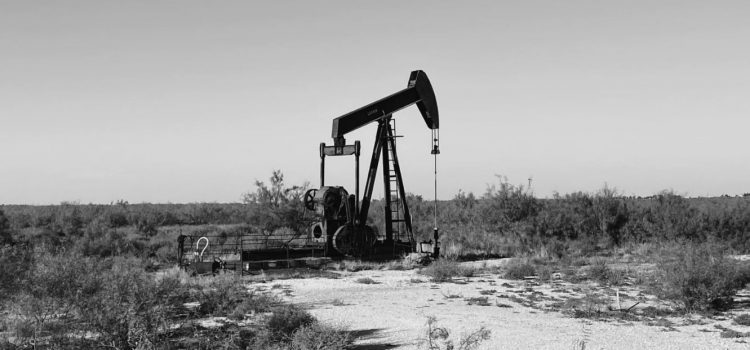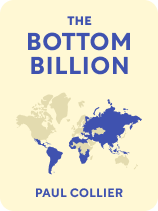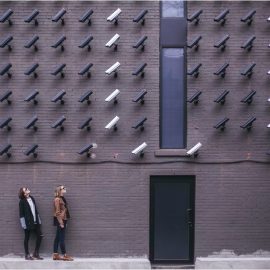

This article is an excerpt from the Shortform book guide to "The Bottom Billion" by Paul Collier. Shortform has the world's best summaries and analyses of books you should be reading.
Like this article? Sign up for a free trial here .
How can relying on the sale of natural resources harm a country? Shouldn’t having an abundance of natural resources make an economy thrive?
The natural resource curse is a paradox because countries that rely on selling expensive natural resources tend to have poorer economies. It’s often the governments that thrive off these resources—to the detriment of their people.
Here’s everything you need to know about the natural resource curse.
The Natural Resource Curse
The natural resource curse (sometimes referred to as the natural resource trap) afflicts nations whose primary revenue comes from selling natural resources like oil, diamonds, or precious metals. According to Collier, reliance on lucrative natural resources harms poor nations in three ways: “Dutch disease,” volatile prices, and the corruption of democracy.
Dutch Disease
Natural resource exports often harm economic growth considerably, due to a phenomenon economists call “Dutch disease.” When a nation discovers a large amount of a natural resource like oil or natural gas (as the Netherlands did in the 1950s, hence the name) and exporting it dominates their economy, this sets off a series of economic consequences that usually leads to more harm than good. Here’s the typical process, using oil as an example.
- A nation discovers, and starts exporting, large amounts of oil.
- Foreign nations buy the oil, causing an inflow of foreign currency.
- The country’s own currency rises in value relative to foreign currencies, because it’s now relatively scarce and foreign currency is abundant.
- Exports produced within the nation (like textiles, for example) become unprofitable. This is because their production costs are paid in domestic currency, and are now more expensive, while their revenue is in foreign currency, which is now relatively cheap.
(Shortform note: The natural resource (in this example, oil) is largely immune from Dutch disease, because the costs of resource extraction are much cheaper than the production of other exportable products.)
Collier argues that the best way for poor nations to grow rapidly is to improve productivity in labor-intensive exports. For example, China exports textiles and electronics, India provides customer service to the West, and both have attained sustained economic growth as a result. Natural resource exports, on the other hand, undercut this method of development the most.
| Many Countries Have Suffered From Dutch Disease Dutch disease has afflicted many nations—for example, England in the 1970s and Venezuela in the 2010s, both from oil discoveries. Recently, many African nations have discovered oil, and now face the same dilemma of Dutch disease. The term “Dutch disease” was coined by The Economist and is a reference to the economic woes that plagued the Netherlands following its discovery of natural gas deposits in the North Sea in 1959. When the Netherlands began exporting their natural gas and exports soared, so did the value of the Dutch guilder. This led to other exports becoming uncompetitive and caused a sharp rise in unemployment and a decline in capital investment. |
Volatile Prices and Bad Budgeting
In addition to creating “Dutch disease,” the natural resource curse harms economies when prices are volatile and governments make bad budgetary decisions. Collier explains that when oil prices are high, government revenue is high. This usually leads to big increases in government spending.
However, when prices drop precipitously (as often happens with oil), governments are loath to make corresponding budget cuts. Collier says that when they do, they usually cut the wrong things. For example, it’s much easier to cut the budget for schools than to downsize the newly built presidential palace.
| Volatile Prices in Venezuela Venezuela’s experience in the past decade illustrates Collier’s observation that when commodity prices plummet in countries with bad fiscal and monetary policy, chaos ensues. Oil accounts for about 95% of Venezuela’s exports and about 12% of its total GDP. When the price of crude oil was well above $130 a barrel in the early 2000s, the socialist government spent extravagantly on a host of social programs. When oil prices dropped, government revenue dried up. Rather than letting the country’s exchange rate shift to accommodate the dip in oil prices, President Nicolas Maduro chose to ration imports. To cover its deficits, the government printed more money. Both strategies failed. The rationing has led to a shortage of food, medical supplies, and other basic necessities. Printing money to pay off debts has led to hyperinflation. According to the International Monetary Fund (IMF), inflation in Venezuela peaked in 2016 at more than 65,000% (for comparison, the US Federal Reserve usually aims for inflation around 2%). In 2017, more than 10% of the population fled the country. Collier warned in The Bottom Billion that Venezuela was benefiting from high oil prices now, but would be in for a rude awakening when prices dropped—his prediction proved correct. |
Corrupting Democracy
In addition to Dutch disease and bad budgeting, Collier also believes that an influx of revenue from natural resources corrupts the democratic process in the poorest democracies, leading to economic harm. Collier thinks this happens for two reasons:
- Shortsightedness: In poor democracies, leaders are focused on the short-term goal of winning the next election, which leads to irresponsible spending. On the other hand, autocracies with a firm grip on power are free to make longer-term investments with payoffs down the road.
- Patronage politics: Leaders find the most cost-effective way to win elections. Poor nations flush with resource revenue are prone to money-driven political corruption, such as bribery, buying votes, and intimidation, because they don’t have the checks and balances of developed democracies.
| How Important Is Democracy? While Collier doesn’t advocate autocracy, he sees democracy as uniquely susceptible to the natural resource curse. His view that democracy incentivizes corruption and shortsighted budgeting decisions is at odds with that of many scholars, who view democracy as an indispensable part of a free society. In Development as Freedom, Harvard economist and Nobel Laureate Amartya Sen argues that critically poor nations need more democracy, which is valuable for its own sake. Giving poor people a voice in how they’re governed enriches their lives. Sen also argues that democracy acts as an important bulwark against some forms of political mismanagement. He highlights the fact that no democracy, however poor, has suffered a famine. This, in Sen’s view, is because even corrupt politicians have an incentive to avert such catastrophes, if only to keep their jobs. Where Collier and Sen agree is that functioning democracy requires more than simple access to the ballot box. Checks and balances, including a free press and independent judiciary, are vital to preventing patronage politics. |

———End of Preview———
Like what you just read? Read the rest of the world's best book summary and analysis of Paul Collier's "The Bottom Billion" at Shortform .
Here's what you'll find in our full The Bottom Billion summary :
- How development aid programs pay too little attention to struggling countries
- A look at the four poverty traps, and the four remedies for them
- How conditions for the bottom billion are changing






